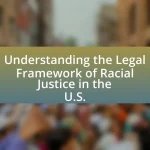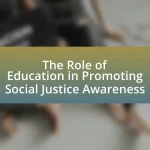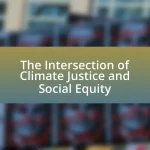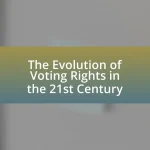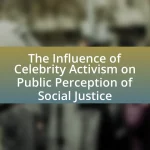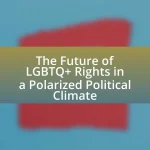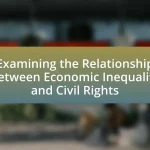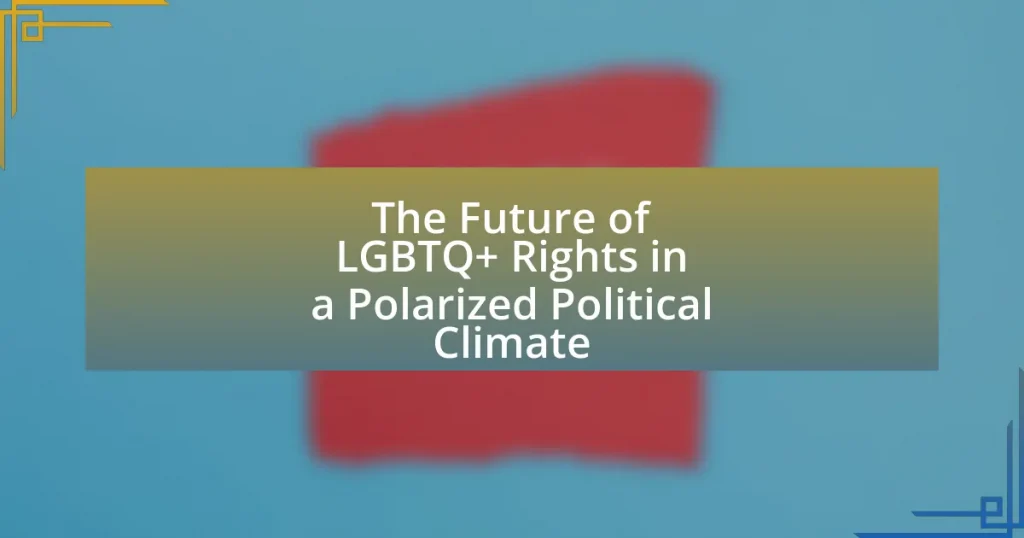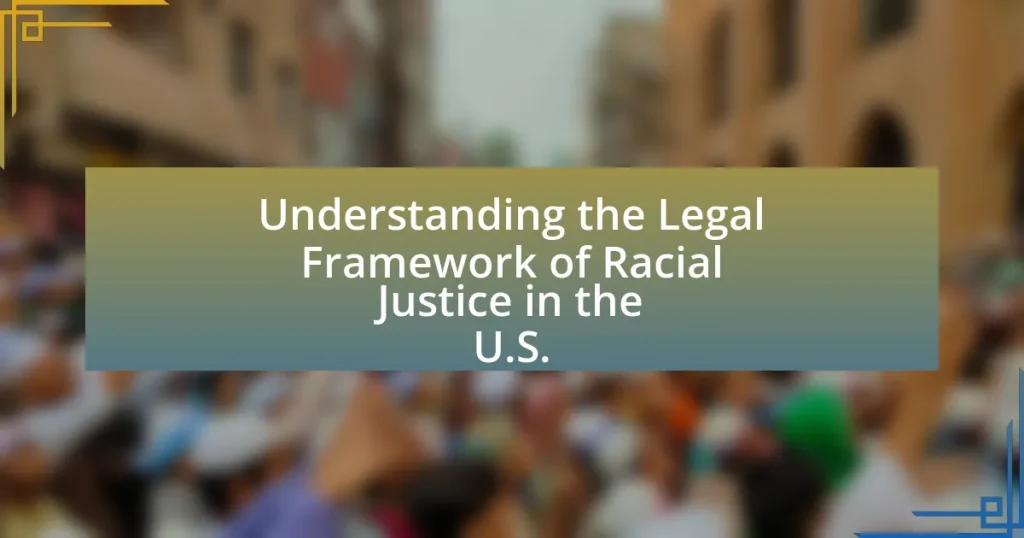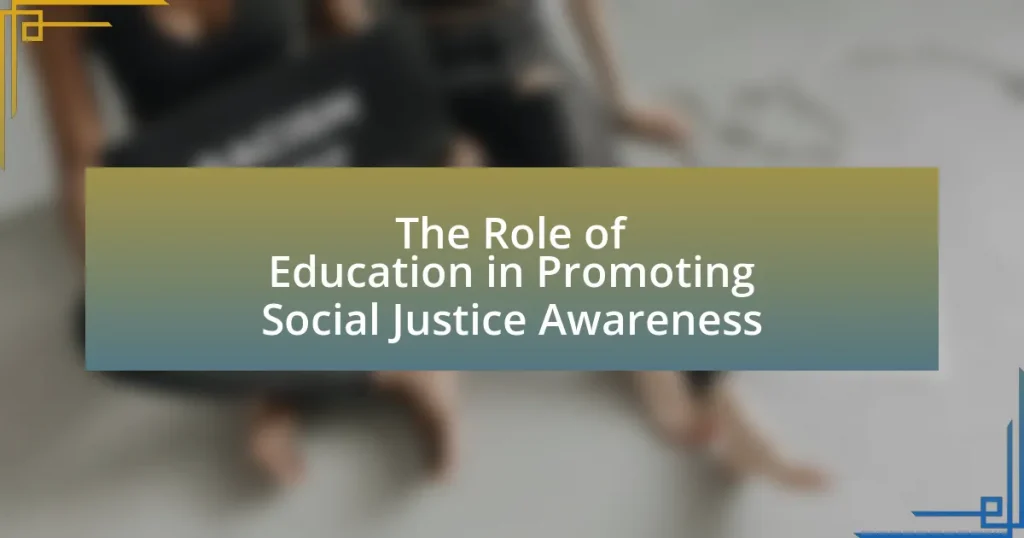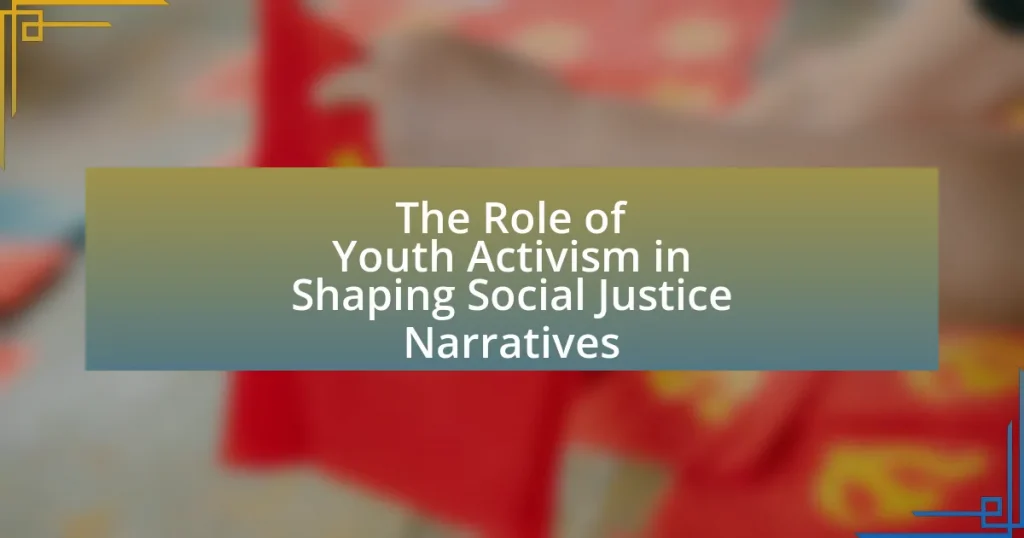The article examines the current state of LGBTQ+ rights within a polarized political climate, highlighting both advancements and significant challenges. It discusses the impact of political divisions on legal protections and social acceptance, noting the introduction of numerous anti-LGBTQ+ bills in various U.S. states. Key historical milestones and legal cases that have shaped LGBTQ+ rights are analyzed, alongside the ongoing discrimination faced by LGBTQ+ individuals in sectors such as healthcare and employment. The article also explores strategies for advocacy and coalition-building to advance LGBTQ+ rights amidst increasing political polarization, emphasizing the importance of legislative actions and the role of allies in supporting these efforts.

What is the current state of LGBTQ+ rights in a polarized political climate?
The current state of LGBTQ+ rights in a polarized political climate is marked by significant challenges and advancements. In many regions, legislative efforts to protect LGBTQ+ rights, such as marriage equality and anti-discrimination laws, have been established; however, backlash from conservative factions has led to increased attempts to roll back these rights. For instance, in 2023, over 400 bills targeting LGBTQ+ individuals were introduced in various U.S. state legislatures, reflecting a growing trend of polarization. This environment has resulted in heightened visibility for LGBTQ+ issues, prompting both advocacy and resistance, which complicates the landscape for future rights and protections.
How do political divisions impact LGBTQ+ rights?
Political divisions significantly impact LGBTQ+ rights by creating varying legal protections and social acceptance across different regions. For instance, in the United States, states governed by conservative leadership often enact laws that restrict LGBTQ+ rights, such as banning gender-affirming care for minors or limiting discussions of sexual orientation in schools. Conversely, states with progressive leadership tend to implement policies that protect and promote LGBTQ+ rights, including anti-discrimination laws and marriage equality. According to the Human Rights Campaign’s 2023 report, states with more liberal political climates have higher scores on the Equality Index, reflecting stronger protections for LGBTQ+ individuals. This polarization leads to a patchwork of rights, where LGBTQ+ individuals face different levels of acceptance and legal protection based on their geographic location.
What specific laws have been affected by political polarization?
Specific laws affected by political polarization include the Defense of Marriage Act (DOMA), which was enacted in 1996 and later struck down by the Supreme Court in 2013, reflecting the shifting attitudes towards same-sex marriage amidst polarization. Additionally, various state-level laws regarding transgender rights, such as bathroom bills and restrictions on gender-affirming care, have emerged in response to polarized political climates, with states like North Carolina and Texas enacting controversial legislation that reflects deep divisions in public opinion. The ongoing debates surrounding the Equality Act, which aims to prohibit discrimination based on sexual orientation and gender identity, also illustrate how political polarization has influenced legislative efforts at the federal level.
How do public opinions on LGBTQ+ rights vary across political lines?
Public opinions on LGBTQ+ rights significantly vary across political lines, with Democrats generally showing stronger support compared to Republicans. For instance, a 2021 Gallup poll indicated that 83% of Democrats favor same-sex marriage, while only 55% of Republicans share that view. Additionally, attitudes towards transgender rights also reflect this divide; a 2020 Pew Research Center survey found that 70% of Democrats believe society should accept transgender individuals, in contrast to just 30% of Republicans. These statistics illustrate the pronounced differences in support for LGBTQ+ rights based on political affiliation, highlighting the polarization in public opinion on this issue.
What historical context is important for understanding LGBTQ+ rights today?
The historical context important for understanding LGBTQ+ rights today includes the Stonewall Riots of 1969, which marked a pivotal moment in the fight for LGBTQ+ equality in the United States. The riots were a response to police raids on the Stonewall Inn, a gay bar in New York City, and they catalyzed the modern LGBTQ+ rights movement, leading to the formation of advocacy groups and the first Pride marches. Additionally, the decriminalization of homosexuality in various countries throughout the late 20th century, such as the U.S. Supreme Court’s decision in Lawrence v. Texas (2003), which invalidated sodomy laws, further shaped the legal landscape for LGBTQ+ individuals. These events highlight the ongoing struggle against discrimination and the push for equal rights, illustrating how historical milestones continue to influence contemporary discussions and policies regarding LGBTQ+ rights.
What role have key legal cases played in the evolution of LGBTQ+ rights?
Key legal cases have been instrumental in shaping LGBTQ+ rights by establishing legal precedents that affirm equality and protect against discrimination. Landmark rulings such as Obergefell v. Hodges in 2015 legalized same-sex marriage nationwide, reinforcing the principle of equal protection under the law. Additionally, cases like Lawrence v. Texas in 2003 decriminalized same-sex sexual activity, dismantling laws that criminalized LGBTQ+ relationships. These decisions have not only advanced legal recognition but also influenced public perception and policy, contributing to a broader acceptance of LGBTQ+ individuals in society.
What challenges do LGBTQ+ individuals face in today’s political environment?
LGBTQ+ individuals face significant challenges in today’s political environment, including legislative discrimination, social stigma, and threats to their rights. Legislative actions in various states have sought to restrict access to healthcare for transgender individuals, with over 20 states enacting laws that limit gender-affirming care. Additionally, anti-LGBTQ+ bills have surged, with more than 300 introduced in 2023 alone, targeting areas such as education and public accommodations. Social stigma persists, leading to increased violence and discrimination against LGBTQ+ individuals, as evidenced by a 2021 report from the Human Rights Campaign, which documented at least 50 violent deaths of transgender and gender non-conforming individuals in the U.S. These challenges create a hostile environment that undermines the progress made in LGBTQ+ rights and protections.
How does discrimination manifest in various sectors?
Discrimination manifests in various sectors through systemic biases, unequal treatment, and exclusionary practices that adversely affect LGBTQ+ individuals. In the workplace, for instance, LGBTQ+ employees often face hiring discrimination, wage disparities, and hostile work environments, with studies indicating that 46% of LGBTQ+ workers report experiencing discrimination. In healthcare, LGBTQ+ individuals encounter barriers such as lack of culturally competent care and outright denial of services, leading to significant health disparities; for example, the National LGBTQ Task Force reports that LGBTQ+ people are more likely to experience mental health issues due to discrimination. In education, LGBTQ+ students frequently experience bullying and harassment, which can lead to higher dropout rates and mental health challenges, as evidenced by the 2019 National School Climate Survey, which found that 60% of LGBTQ+ students felt unsafe at school. These manifestations of discrimination across sectors highlight the ongoing challenges faced by the LGBTQ+ community in a polarized political climate.
What are the implications of workplace discrimination for LGBTQ+ individuals?
Workplace discrimination significantly impacts LGBTQ+ individuals by leading to mental health issues, reduced job satisfaction, and economic instability. Studies indicate that LGBTQ+ employees who experience discrimination are more likely to suffer from anxiety and depression, with a 2019 report from the Human Rights Campaign revealing that 46% of LGBTQ+ workers have faced discrimination at work. This discrimination can result in lower productivity and higher turnover rates, as individuals may seek more inclusive environments. Additionally, economic consequences arise from wage disparities and limited career advancement opportunities, further exacerbating financial insecurity among LGBTQ+ individuals.
How does discrimination in healthcare affect LGBTQ+ communities?
Discrimination in healthcare significantly harms LGBTQ+ communities by leading to increased health disparities and reduced access to necessary medical services. LGBTQ+ individuals often face bias from healthcare providers, resulting in avoidance of medical care, which can exacerbate physical and mental health issues. For instance, a 2019 study published in the American Journal of Public Health found that LGBTQ+ individuals are more likely to report experiencing discrimination in healthcare settings, which correlates with higher rates of anxiety and depression among these populations. Additionally, the National LGBTQ Task Force reports that such discrimination contributes to lower rates of preventive care, increasing the risk of untreated health conditions.
What are the risks of backlash against LGBTQ+ rights?
The risks of backlash against LGBTQ+ rights include increased discrimination, violence, and the erosion of legal protections. Historical data shows that in regions where anti-LGBTQ+ legislation is enacted, hate crimes against LGBTQ+ individuals often rise; for example, the FBI reported a 20% increase in hate crimes based on sexual orientation in 2019. Additionally, backlash can lead to the rollback of existing rights, as seen in various U.S. states where laws have been passed to limit transgender individuals’ access to healthcare and participation in sports. This creates a hostile environment that can negatively impact mental health and societal acceptance of LGBTQ+ individuals.
How do anti-LGBTQ+ policies impact mental health and well-being?
Anti-LGBTQ+ policies significantly harm mental health and well-being by increasing stigma, discrimination, and social isolation among LGBTQ+ individuals. Research indicates that such policies contribute to higher rates of anxiety, depression, and suicidal ideation within this community. For instance, a study published in the American Journal of Public Health found that states with more restrictive LGBTQ+ policies reported a 20% increase in suicide attempts among LGBTQ+ youth compared to those in more supportive environments. This correlation underscores the detrimental effects of anti-LGBTQ+ legislation on mental health outcomes, highlighting the urgent need for inclusive policies to promote well-being.
What are the potential consequences of increased political polarization on LGBTQ+ rights?
Increased political polarization can lead to significant setbacks for LGBTQ+ rights, including the potential rollback of existing protections and the introduction of discriminatory legislation. For instance, as political factions become more extreme, lawmakers may prioritize partisan agendas over civil rights, resulting in laws that undermine marriage equality, anti-discrimination protections, and access to healthcare for LGBTQ+ individuals. Historical evidence shows that during periods of heightened polarization, such as the 2016 U.S. presidential election, states with more polarized legislatures introduced numerous bills targeting LGBTQ+ rights, including bathroom bills and restrictions on adoption by same-sex couples. This trend indicates that as polarization intensifies, the risk of regressive policies aimed at LGBTQ+ communities increases, threatening hard-won rights and protections.

What strategies can be employed to advance LGBTQ+ rights in a polarized climate?
To advance LGBTQ+ rights in a polarized climate, advocacy organizations should focus on building coalitions across diverse groups. These coalitions can unite various stakeholders, including religious, racial, and economic communities, to create a broader base of support for LGBTQ+ rights. Research indicates that inclusive coalitions can effectively challenge discriminatory policies and promote acceptance, as seen in the success of campaigns like the Human Rights Campaign’s “All Families Matter,” which engaged multiple demographics to advocate for marriage equality. Additionally, leveraging social media platforms for awareness campaigns can mobilize grassroots support and counteract misinformation, as demonstrated by the viral impact of the #LoveIsLove campaign during the marriage equality debates. Engaging in dialogue with opponents to find common ground on shared values can also facilitate understanding and reduce polarization, as evidenced by initiatives that have successfully shifted public opinion on LGBTQ+ issues through personal storytelling and empathy-building efforts.
How can advocacy groups effectively mobilize support for LGBTQ+ rights?
Advocacy groups can effectively mobilize support for LGBTQ+ rights by leveraging strategic communication, grassroots organizing, and coalition-building. Strategic communication involves crafting clear, relatable messages that resonate with diverse audiences, utilizing social media platforms to amplify these messages and engage supporters. Grassroots organizing empowers local communities by encouraging participation in events, rallies, and campaigns, fostering a sense of ownership and urgency around LGBTQ+ issues. Coalition-building with other social justice organizations enhances visibility and strengthens advocacy efforts, as seen in successful campaigns like the 2015 Supreme Court ruling on same-sex marriage, which was supported by a broad coalition of civil rights groups. These methods collectively create a robust framework for mobilizing support and advancing LGBTQ+ rights in a polarized political climate.
What role does grassroots activism play in promoting LGBTQ+ rights?
Grassroots activism plays a crucial role in promoting LGBTQ+ rights by mobilizing communities, raising awareness, and influencing policy changes. This form of activism empowers individuals at the local level to advocate for equality and justice, often leading to significant social and legislative advancements. For instance, grassroots organizations have been instrumental in campaigns that resulted in the legalization of same-sex marriage in various countries, demonstrating their effectiveness in shaping public opinion and policy. Additionally, studies show that grassroots movements can increase visibility and support for LGBTQ+ issues, as seen in the rise of Pride events and local advocacy initiatives that foster community solidarity and engagement.
How can coalitions be formed to unite diverse groups for LGBTQ+ advocacy?
Coalitions can be formed to unite diverse groups for LGBTQ+ advocacy by establishing common goals and fostering inclusive dialogue among stakeholders. This process involves identifying shared interests, such as anti-discrimination policies or healthcare access, which resonate across different communities. Research indicates that successful coalitions often utilize frameworks like the “Collective Impact Model,” which emphasizes collaboration, shared measurement, and continuous communication among diverse organizations. For instance, the collaboration between LGBTQ+ groups and racial justice organizations during the Black Lives Matter movement exemplifies how intersectional advocacy can amplify voices and create a unified front. By leveraging these strategies, coalitions can effectively mobilize resources and influence policy changes that benefit the LGBTQ+ community in a polarized political climate.
What legislative actions can be taken to protect LGBTQ+ rights?
Legislative actions that can be taken to protect LGBTQ+ rights include the introduction and passage of comprehensive non-discrimination laws, such as the Equality Act, which aims to prohibit discrimination based on sexual orientation and gender identity in various areas including employment, housing, and public accommodations. Additionally, states can implement laws that specifically protect LGBTQ+ youth from conversion therapy and ensure access to gender-affirming healthcare. Historical context shows that the legalization of same-sex marriage in 2015 through the Supreme Court case Obergefell v. Hodges significantly advanced LGBTQ+ rights, demonstrating the impact of legislative measures.
What are the most effective policies to propose for safeguarding LGBTQ+ rights?
The most effective policies to propose for safeguarding LGBTQ+ rights include comprehensive anti-discrimination laws, inclusive healthcare access, and education reforms promoting LGBTQ+ awareness. Comprehensive anti-discrimination laws protect individuals from discrimination based on sexual orientation and gender identity in employment, housing, and public accommodations, as evidenced by the Equality Act in the United States, which aims to extend these protections federally. Inclusive healthcare access ensures that LGBTQ+ individuals receive equitable treatment, including mental health services and gender-affirming care, supported by studies showing that access to such care significantly improves health outcomes. Education reforms that promote LGBTQ+ awareness in school curricula foster acceptance and understanding, reducing bullying and discrimination, as demonstrated by research from GLSEN indicating that inclusive curricula lead to safer school environments for LGBTQ+ students.
How can allies contribute to the legislative process for LGBTQ+ rights?
Allies can contribute to the legislative process for LGBTQ+ rights by advocating for inclusive policies and supporting legislation that protects LGBTQ+ individuals. This advocacy can take the form of lobbying elected officials, participating in public demonstrations, and mobilizing community support to influence lawmakers. For instance, the Human Rights Campaign reported that grassroots efforts have successfully led to the passage of significant legislation, such as the Equality Act, which aims to prohibit discrimination based on sexual orientation and gender identity. By leveraging their privilege and platforms, allies can amplify LGBTQ+ voices and ensure that their needs are represented in the legislative process.
What practical steps can individuals take to support LGBTQ+ rights?
Individuals can support LGBTQ+ rights by actively advocating for inclusive policies and legislation. This includes contacting local representatives to express support for bills that protect LGBTQ+ individuals from discrimination, such as the Equality Act, which aims to provide comprehensive protections against discrimination based on sexual orientation and gender identity. Additionally, individuals can participate in or organize community events that promote awareness and acceptance of LGBTQ+ issues, such as Pride parades or educational workshops. Supporting LGBTQ+ organizations through donations or volunteering also contributes to the advancement of rights and resources for the community. Engaging in respectful conversations to challenge stereotypes and misinformation about LGBTQ+ individuals further fosters a more inclusive environment.
